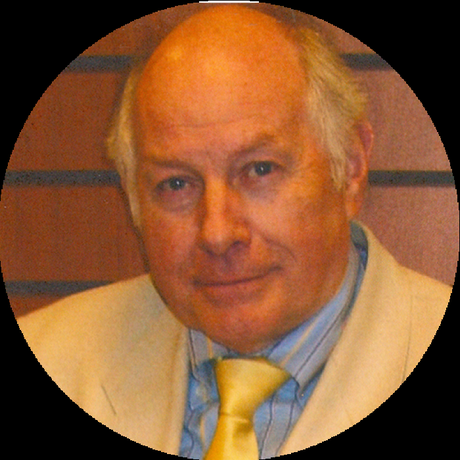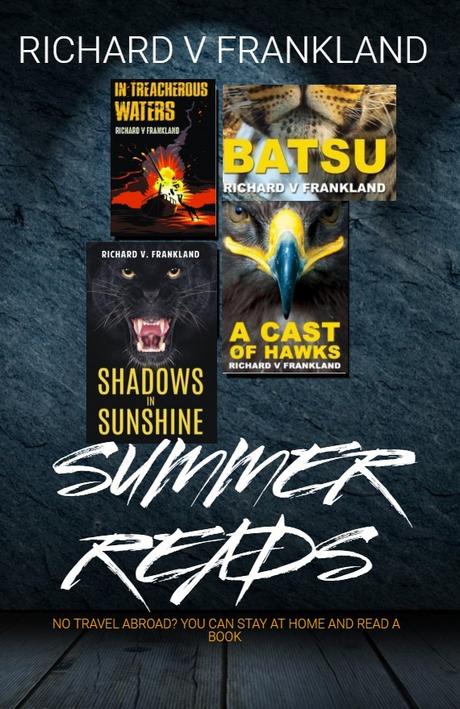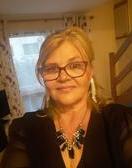
Richard’s early working life was as a construction engineer, a career that took him abroad to work in Zambia and Jordan for one of Britain’s leading consulting engineers. Returning home he joined a major japanese corporation, administering large civil and industrial projects in Europe, Africa and the Far East. It was during this period that he had the idea for his first novel and early chapters written. A career change, to help run a small family business, gave him the time to read for a Masters Degree in Maritime Studies, a subject that had been of lifelong interest to him. It was due to the encouragement of his wife and friends that he took up writing again.
Apart from writing he gives talks on maritime history and is a keen member of the RAF Yacht Club. When time permits he dabbles in water color painting.
If in the previous post we presented his books, now Richard will answer a few questions and let us know more about him.

Can you give us an overview of your books? What are they about and who are they aimed at?
I started out wanting to write an up to date ‘Riddle of the Sand’ type plot which became more crime thriller/adventure style plot as the plot in ‘A Cast of Hawks’ took shape. Thinking at first that ‘A cast of Hawks’ would be a one off, I found myself flattered by the reader response and demand for more Ian Vaughan adventures. Now, ten years later the fifth book in the Ian Vaughan thriller series is currently with my publishers and a loyal readership is enjoying the latest title to be released, ‘In Treacherous Waters’. My readership is amazingly varied with probably around 70% it being female, and a wide age range from early twenties through to the elderly.
Do you have a writing schedule? Tell us how you go about writing your books.
Immediately ‘A Cast of Hawks’ took off writing became a full time job sometimes seven days a week when the plot is flowing. If I am not writing I am either trying to market my books or researching for plot details to make the plots as accurate as I possibly can. One important thing I have learnt is to get some daily exercise and I go for a brisk walk for about half an hour, hopefully avoiding rainy periods. Apart from the first book, the plot for which was triggered by the sight of two very frightening people passing through Heathrow Airport, my subsequent inspiration has come whilst on holiday. The surrounds and economic situation in Madeira, plus the failure of the Arab Spring gave rise to ‘Shadows in Sunshine’ for example. ‘In Treacherous Waters’ has its origins from my years of working in Africa and the next book was inspired during a visit to New Zealand. Having got the inspiration I develop, ideally on location, the skeleton of the plot including a climatic conclusion. Returning home I then set about researching the details, from economic studies, history of the plot settings, geophysics, weapons and even got to go on board a Royal Navy aircraft carrier to ensure that my plot involving the ship would actually be viable. Each book has taken on average two years to write followed by an initial third person edit and a period of pedantic semantics, before it goes to my publisher.
All of your books are crime thrillers – what drew you to this genre in particular?
If I am honest it was the two people who inspired my thoughts for the first book, ‘A Cast fo Hawks’. Having achieved a limited success with that and with numerous requests for more Ian Vaughan adventures I began to find that I was comfortable with the genre and discovered an ear and eye for the plot challenges.
Thrillers and crime fiction are clearly genres that interest you – who is your favorite crime/thriller novelist and why?
Undoubtedly Alistair MacLean, his plot and characterisations are so vivid and the pace of his books match so well with the genre.
What literary pilgrimages have you gone on?
Very few but varied. Jane Austen was of interest especially her gathering of social background so following her life from Bath to Winchester via Southampton and Alton revealed a lot about her use of personal experience. Agatha Christie also had a good eye for social structures and produced some very convoluted plots assisted enormously by the work of her archaeologist husband. Ian Rankin and Edinburgh taught me the value of knowing the setting for the plot in great detail in order to give it the right atmosphere as a backdrop to the action.
Do you think someone could be a writer if they don’t feel emotions strongly?
If you are writing fiction you must understand your characters, and the only way I am able to achieve that is to try and take on their emotions, as most good actors do when performing their parts.
How did publishing your first book change your process of writing?
It moved it from a spare time activity into a full time occupation.
What was an early experience where you learned that language had power?
A school prize giving where the guest speaker gave a truly inspirational speech.
What do you owe the real people upon whom you base your characters?
I suppose eternal gratitude. With only one exception my characters a composition of several people so I have many friends and acquaintances to thank.
How many unpublished and half-finished books do you have?
Four which started life well but ran out of steam and in need of a plot twist to re-energise them.
What kind of research do you do, and how long do you spend researching before beginning a book?
I like to get the skeleton of the plot settled first the start the research into the nuts and bolts of any technical issues involved. Only then is the character list prepared and detailed writing started.
Have you read anything that made you think differently about fiction?
The little known author Richard Milton’s books signal a bit of a change in terms of character detail which I hope improved my work. I am always fascinated by other writers style but selective in what I take from it.
Do you believe in writer’s block?
Not really. There are times when I find that the plot hits a wall and I cannot see a way forward, but that normally means that I am a character short or I have taken a wrong turn earlier and need to retrace my steps then take a different route.

